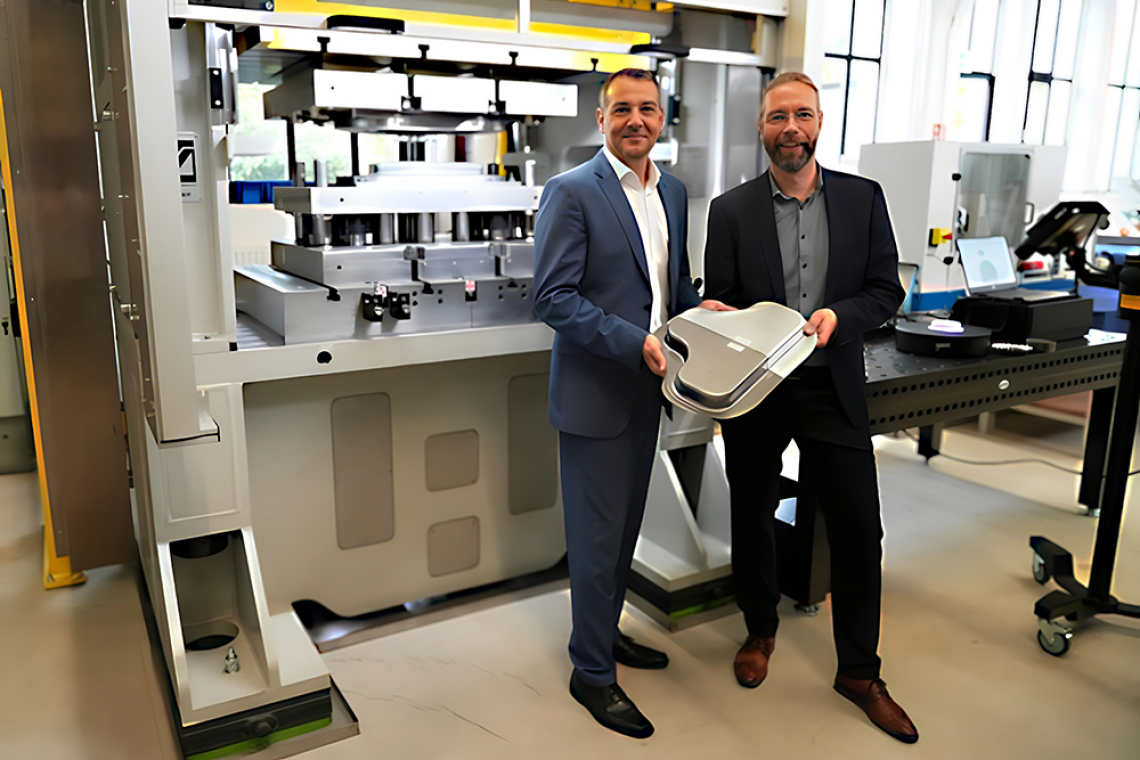Researchers at the Technische Universität Dresden (TUD) are developing innovative production processes for the reuse and recycling of metal components in the project "2nd Life Metal Components: A Pathfinding Project for Upcycling".
The eight-year project is headed by Prof. Alexander Brosius and Prof. Andrés Fabián Lasagni from the Institute of Production Engineering. It is being funded by the Werner Siemens Foundation with 13 million euros. In future, the project will offer a 25-strong team a broad field of research. As the demand for metals in industrialized nations continues to rise, so too do anthropogenic stocks. This means that more and more metals remain in infrastructures and buildings over long periods of time. Due to the scarcity of resources, conventional recycling methods - in particular energy-intensive melting - are no longer justifiable. In the "2nd Life Metal Components" project, these processes are to be avoided by directly reusing existing metal parts through upcycling and manufacturing new products from them. The secondary use of existing raw material stocks is known as urban mining. These processes can significantly reduce energy consumption and conserve valuable resources. Laser-based technologies are used to improve the properties of recycled metals and produce tailored blanks with specific properties for certain applications.


